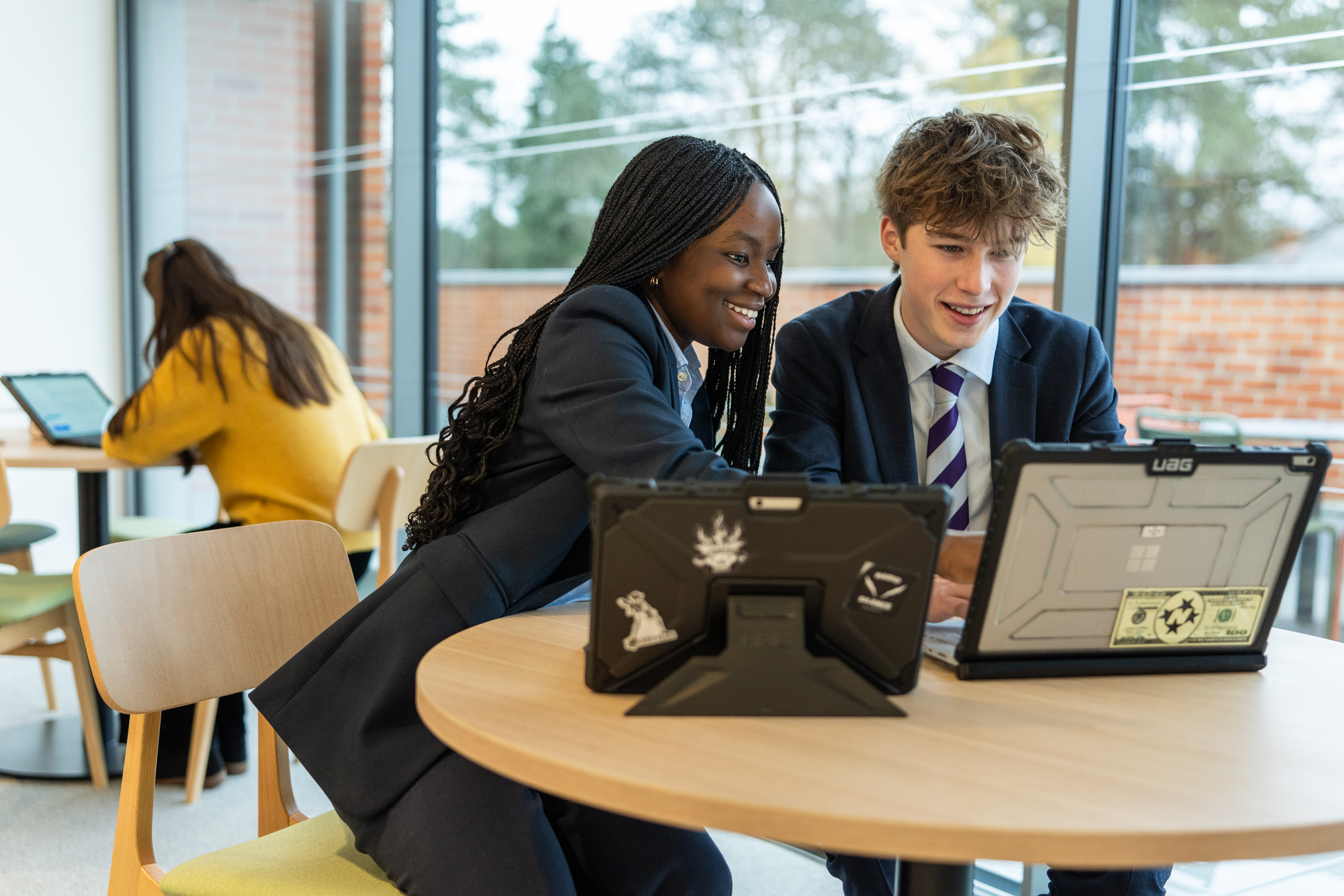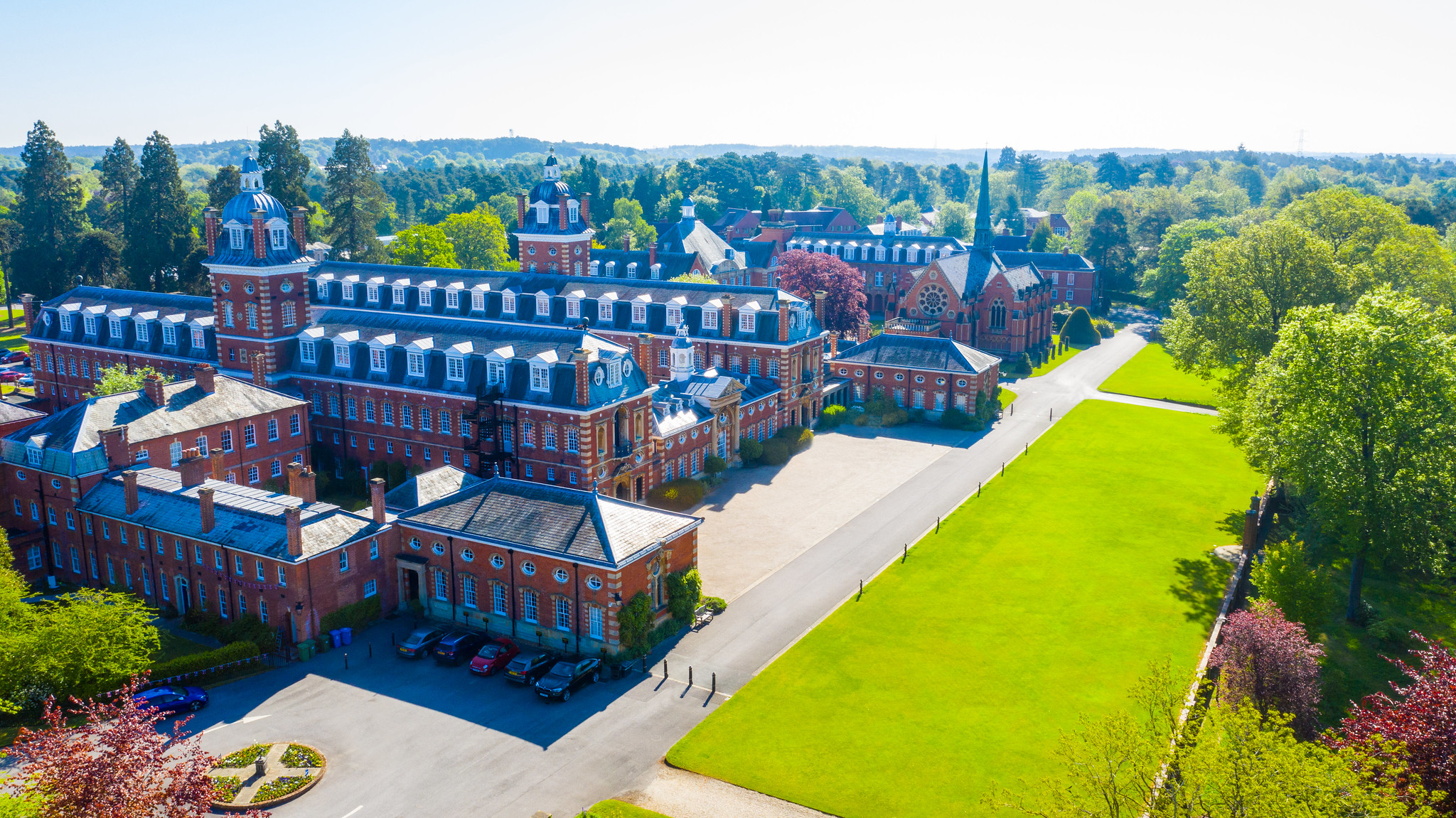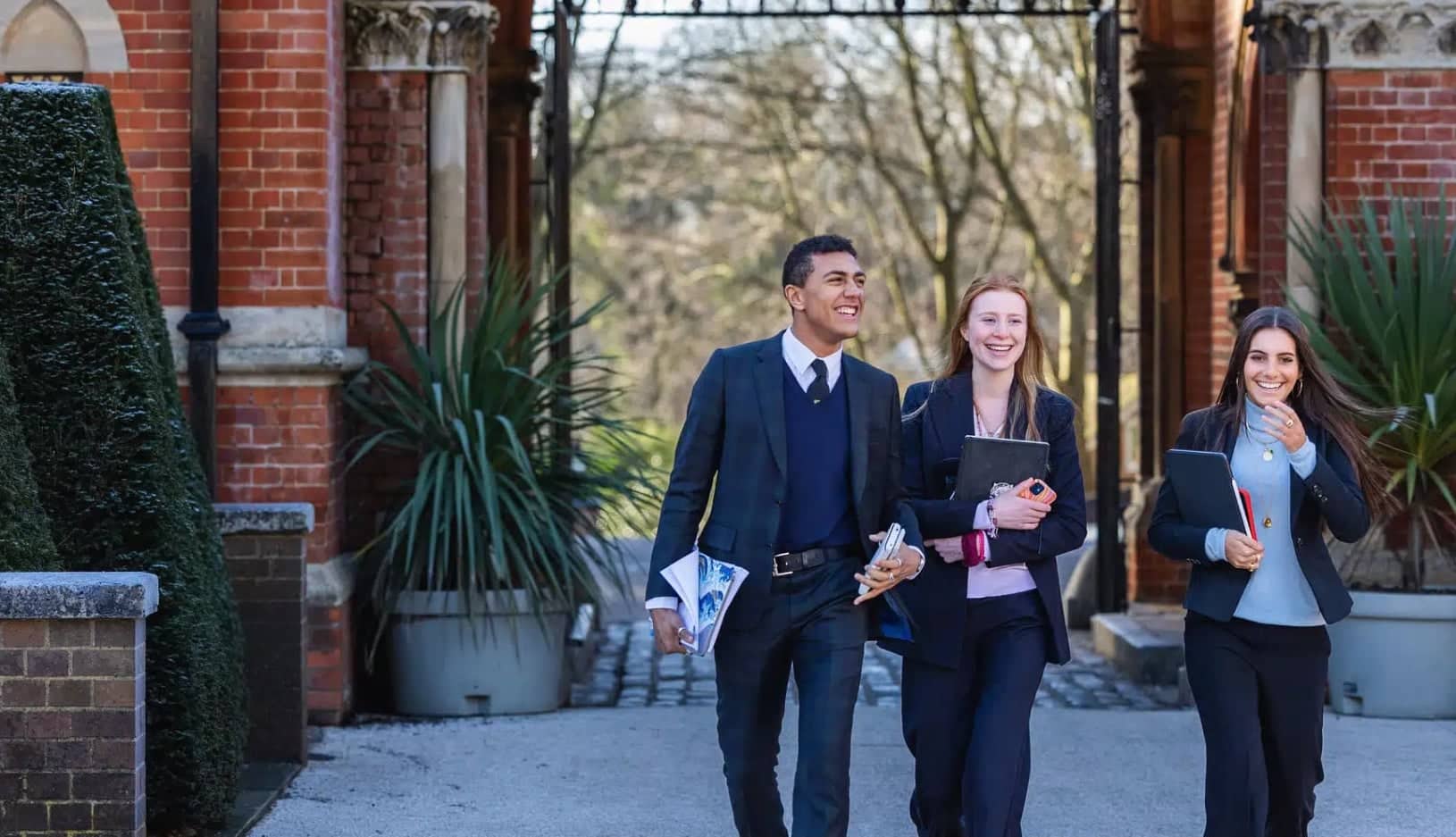IB Diploma basics
- Students pick six subjects: 3 Higher, 3 Standard, picking one from each of groups 1 to 5 plus a free choice.
- It is possible but not recommended to do 4 HLs
- ESS counts as both a science and humanity. If you choose it, you are far more flexibility because both compulsory groups are covered in one choice
- A small amount of students apply for an “irregular” diploma that does not obey these rules. This is allowed if it can be shown that a university demands the choices (e.g. some Belgian universities need Bio, Chem and Physics)
Group 1: English
Group 2: Languages
- Classical languages
- French, German, Spanish Ab initio
- French, German, Spanish + others B
- Plus a small amount of students studying German A (or other first languages)
Group 3: Humanities
Group 5: Maths
- There are essentially four levels of Maths. At the top, is the super-sophisticated HL Analysis course for very strong mathematicians who are heading for Engineering, Maths, CompSci, and mathematical versions of Economics, etc. It is “Pure” maths including Proof, Calculus, 3D vectors, etc. Next is HL Applications, this is a tough problem-solving course involving differential equations, phase portraits, vectors but also including more computation Maths; Graph Theory, sophisticated Statistics (e.g. nine different hypothesis tests) and financial maths.
- Analysis and approaches
- Applications and interpretation
Group 6: The Arts
Plus the Core
All students must do CAS but there are no points for it. It is baked into being a Wellingtonian anyway. The EE and TOK combine to make 3 valuable points. The EE is 4000 word academic essay on a single IB subject, or two subjects IB combined. TOK has two small courseworks done in lesson time.
Three Examples
See how different these two IB choices . The first is clearly a scientist but the standard levels make them a more rounded person with useful skills. The middle student has Bio and Maths SL to back up their Psychology, and has English to back up Latin and History. The third is a creative option, but could have been more so… choosing ESS instead of B&M would mean DT could be swapped for Dance for example.
HL
| HL
| HL
|
How to succeed in the IB
- Being organised is great, but this is something you learn during the IB, we don’t expect young Lower Sixth students to be perfect! Get into good habits… Aristotle said, “We are what we repeatedly do. Excellence, then, is not an act but a habit.”
- Little and often work ethic. No all-nighters just before a deadline!
- Look at the calendar of deadlines and get ahead of the curve. The best students do not hand in their work 5 minutes before the deadline. This is a skill sorely needed at university
Why choose the IB
- Compared to matched A Level students, IB Diploma students were three times more likely to enrol in a top 20 higher education institution (HEI) in the UK.
- IB Diploma students were also 21% more likely than matched A Level students to continue to their second year of university study.
- Upon completing university, IB Diploma students were 7% more likely than their A Level peers to achieve a first-class honours degree.
- Similarly, IB Diploma students were 40% more likely than matched A Level students to obtain a first or upper second-class honours degree.
- Six months after graduation, compared to matched A Level students, IB Diploma students were 38% more likely to be engaged in further study.
- IB UK higher education outcomes (2021) can be found here.
- The IB is considered outstanding in how well it develops independent inquiry and self-management skills – the key qualities that universities look for and are essential for success in the global workplace. In a recent survey, university admissions officers agreed that the IB programme develops these skills well or very well (94% for independent inquiry and 91% for self-management, compared to 49% and 47% for A-levels, respectively). The full University Admissions Officers Report 2017 can be found here.
Oxbridge like it
- Oxford – All IB offers are 38, 39 or 40 (Remember, Wellington’s average hovers around 40)
- Cambridge – over 10 years, Cambridge have given more % offers to IB students
The USA likes it
- There are more than 600 IB schools in USA. Their universities are very IB friendly.
| Typical Offers: | |
|---|---|
| Birmingham Biology | 32 |
| Bristol French and German | 34 |
| St Andrew’s Psychology | 35 |
| Nottingham Economics | 38 |
| Nottingham PPE | 38 |
| Leeds Engineering | 36 |
| Durham IR | 37 |
| Durham Chemistry | 38 |
| Oxford Classics | 39 |
| Cambridge Economics | 42 |
CAS info
CAS stands for Creativity, Activity and Service and is one of the three essential elements of the IB “Core”, alongside Theory of Knowledge (ToK) and the Extended Essay (EE). Although CAS carries no points it is a requirement to gain a Diploma.
CAS lasts for a minimum of 18 months and has a set of seven specific learning outcomes, achieved through experiential learning as pupils are encouraged to try new challenges and skills.
Creativity focuses on the arts and experiences that involve creative thinking; Activity is sport based, contributing to a healthy lifestyle; and Service concentrates on an unpaid an voluntary exchange with a community in need, ensuring that the rights and dignity of all involved and respected.
The learning outcomes are achieved through the completion of seven main experiences, two each in the areas of creativity, activity and service plus a project. The project is the largest piece of work completed for CAS and must last at least one month and involve four or more pupils leading it, with a focus on project management.








